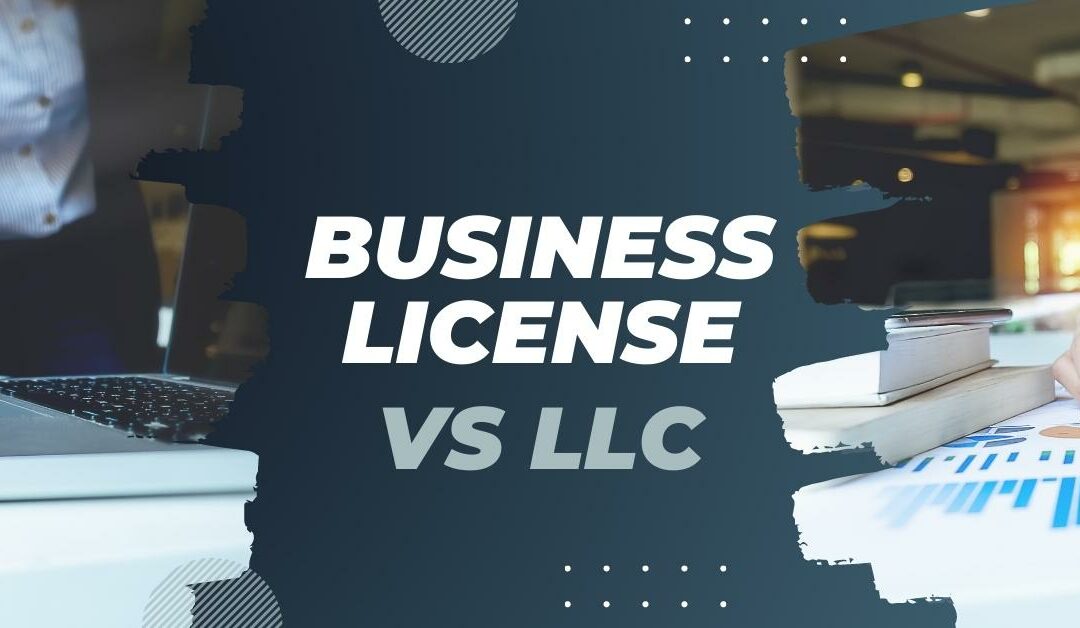When starting a business, one of the first decisions you’ll need to make is what business structure to use. There are a few different options to get off the ground as a business, but two of the most common ways to start include getting a business license and starting an LLC. So, what’s the difference? Let’s look at the pros and cons of business structures and help you decide which is right for you.
Starting a Business in North Carolina
In North Carolina, you can start a business by doing business as a sole proprietor or partnership without registering with the state. However, you may need other licenses and permits to run your business legally.
Business structures such as non-profits and LLCs need to register with the state before opening their doors. However, suppose your business is a sole proprietorship or partnership. In that case, there is no need to register your business with the state of North Carolina unless you want to do business under an assumed name.
What is a Business License? What Does it Do?
No matter which type of business structure you choose, you’ll need to find out which permits and business licenses you require to operate in your county, city, or other regulatory location. There is no generic business license that will ensure compliance with all requirements.
“Some business may be subject to several state requirements while others may not be subject to any. There are over 700 regulatory, state-issued and occupational licenses and permits. In addition, a local license may be required for your business.” (1)
You can find out which licenses and permits you may need at Business Link NC or talk with your local business attorney about getting started. Also, check out NC Bold if your occupation requires additional occupational licensing.
What is an LLC?
In addition to the above business requirements, an LLC must register as a business entity with the state.
An LLC is a more complex business entity that must take several additional steps above and beyond a sole proprietorship or partnership before opening its doors, including:
- Create and File Your Organizational Documents: An LLC creates and files Articles of Organization with the state to comply with the North Carolina Limited Liability Company Act.
- Management and Members: You’ll need to decide who the managers and members are in your LLC
- Recognize Your Tax Responsibilities: An LLC does not pay taxes. Instead, its members pay taxes on the income that passes through the LLC. An LLC may also file a federal tax designation to pay federal taxes as an S-corp. Talking with your business attorney can help you decide if this tax status could help you pay less in taxes.
Benefits of an LLC Over a Sole Proprietorship or Partnership
Many businesses decide to open an LLC rather than an unregistered business, such as a sole proprietorship or partnership. The most significant reason for wanting an LLC is that LLCs have limited liability.
For example, as a member of an LLC, if another member makes a wrong business decision and loses $50,000, you are not personally liable for paying back the company. And you are only ever liable up to the amount of capital you contribute to the company.
In a sole proprietorship, there is no protection if you mess up. In a partnership, you are legally and personally liable for your partner’s mistakes.
Tax Considerations
Whether you register your business or not, you will need to file many types of legal documents to open and run without problems.
Most businesses will need to file for an IRS Employer Identification Number (EIN) for federal business taxes. You may also need to file with the NC Department of Revenue (DOR) to file taxes with the state.
How to Choose the Right Business Structure for You
The business license vs LLC debate is one you’ll want to have with your business attorney. They can help you understand each business structure’s liability protections and tax implications.
You may decide that a sole proprietorship or partnership is suitable for your business because of the simplicity and lack of compliance requirements. But if you’re looking for more legal protection, an LLC may be the business structure for you.
Your business attorney will understand the liabilities you may face in your industry and which licenses and permits you may need to operate. Starting a business involves many new responsibilities and piles of legal documents. Your attorney can help you wade through the paperwork and start your business on the right foot!
In addition, as you grow, your business attorney can help you with contracts, mergers and acquisitions, employee rights and responsibilities, unemployment hearings, worker’s compensation cases, and more.
We Can Help
At Hopler, Wilms, and Hanna, our goal is to help your business thrive in our beautiful state. To learn more about business licenses, LLCs, and business law in general, contact us today. We’d be happy to discuss any issues. Set up a consultation and discover how we can help your business grow!

